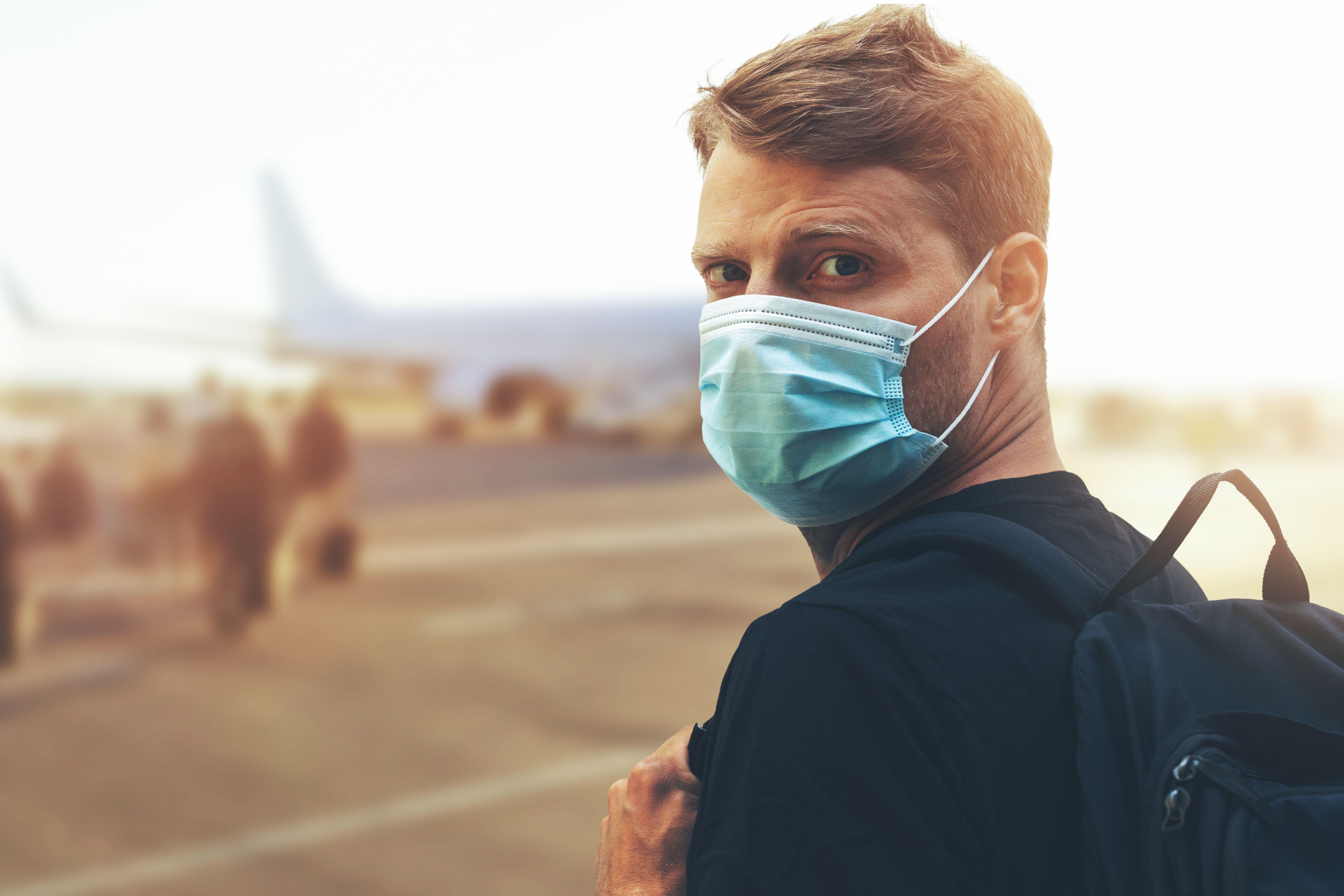10 tips to ease your anxiety around travelling
Because you can – if you want – get on a plane and fly somewhere.

Your support helps us to tell the story
From reproductive rights to climate change to Big Tech, The Independent is on the ground when the story is developing. Whether it's investigating the financials of Elon Musk's pro-Trump PAC or producing our latest documentary, 'The A Word', which shines a light on the American women fighting for reproductive rights, we know how important it is to parse out the facts from the messaging.
At such a critical moment in US history, we need reporters on the ground. Your donation allows us to keep sending journalists to speak to both sides of the story.
The Independent is trusted by Americans across the entire political spectrum. And unlike many other quality news outlets, we choose not to lock Americans out of our reporting and analysis with paywalls. We believe quality journalism should be available to everyone, paid for by those who can afford it.
Your support makes all the difference.As restrictions slowly start to lift, going on holiday to another country is an actual possibility. Lots of us might prefer to hold off a bit longer, but for others, the ability to jet off to sunnier climes – or indeed cold ones – is seriously needed. Vrbo’s Family Psychologist, Dr. Angharad Rudkin, shares her tips to help those feeling nervous about travelling again.
1. Guard yourself with knowledge
“Research has shown that information can help reduce anxiety. Spend time looking at your holiday destination, finding pictures of your accommodation and learning about the area. The more information you have, the less anxious you will feel.”
The same goes for finding out about Coronavirus and vaccination rates in that destination – knowledge is power.
2. Focus on the good stuff
“Encourage each member of your family to say what they are particularly looking forward to on their holiday. Focusing on the positive will help them manage the negatives.”
3. Get the old photos out
“We are all so used to being cocooned at home now. The thought of going away may bring up all sorts of worries and ‘what ifs’. Look at photos from previous holidays. Being reminded of how great it has been on holiday in the past, will help everyone stand up to their worry thoughts about going away now.”
4. Start small
“Rather than go straight into a two-week holiday, try a day trip, then staying away for one night only. The more you do it, the easier it will be to stay away from home.”
5. Do some breathwork
“When we get anxious, our breathing becomes quick and shallow. Train yourself to take long, slow breaths in through your nose, and out through your mouth. This will help your body to relax, which will in turn, calm your emotions and your thinking.”
6. Make a lucky dip for travelling
“Travelling for holidays can feel like a chore. Instead, make the travelling a fun part of the holiday, by planning carefully. Pack a small bag of items to play with, look at, eat, drink, listen to, touch. At regular intervals (e.g. every 30 minutes), you or another person in the family can dip their hand into the bag, to pull out the next item. The element of anticipation and surprise is almost more important than the item. This travel lucky dip can keep children and adults entertained for hours.”
7. Pack some home comforts
“Anxiety is fuelled by the unknown. The higher the unfamiliarity, the higher anxiety can be. Combat this by packing some familiar items from home. Take pillows, cuddly toys, mugs or trinkets with you. They will be a source of comfort and will help you relax into the holiday.”
8. Stick to your routine
“One of the pleasures of holidays is a break from daily routine. But for more nervous travellers, carrying some routines over into the holiday, at least for the first few days, can help with the transition. Significant routines tend to be around mealtimes and bedtimes, so sticking to your usual plan while away will help cue the body and mind to relax.”
9. Trust yourself
“Going on holiday requires a lot of trust. Trust in the arrangements, the organisations and the people involved. Most importantly, it also involves trust in yourself. Being away for the first time in a while can bring up a lot of anxious thoughts, because of the uncertainty and unfamiliarity. Instead of getting cross with yourself about feeling anxious, use your self-soothing voice to comfort and reassure yourself that it will be OK, that you can cope with the change and that it will actually be of benefit to you. Use this same voice to comfort others in your family who may be struggling with the change.”
10. Try new things
“Self-identity is built up from new experiences. Give yourself and your family the opportunity to rediscover who you all really are by throwing yourself into new adventures, whether that’s swimming in the sea for the first time or learning to sleep in a different bed. Make sure you celebrate your effort and courage afterwards, as this will make it more likely that you’ll try new things again in the future.”